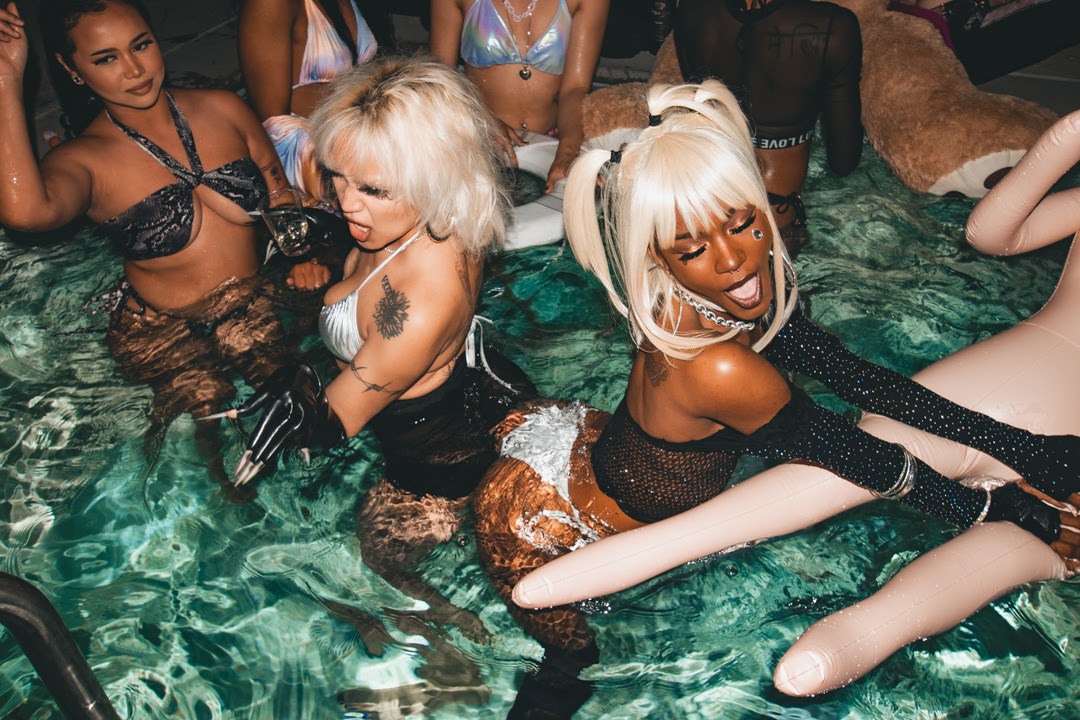 Cydnee With A C and IV4. Photo by Vpk.metanoia
Cydnee With A C and IV4. Photo by Vpk.metanoia
The Rap Report is The FADER’s column dedicated to highlights in the rap world, from megastar artists to the deep underground.
I tend not to listen to a lot of new music when I’m away from home. I’m not sure why it became a habit. Maybe it’s for some esoteric, bro-science reason like wanting to “reset” my ears, or something more practical, like how annoying keeping up can be. Either way, I’m not complaining. I spent a lot of April away from North Carolina, so I ended up limited to the old — like “Pray for Haiti just dropped” old — playlists downloaded on my phone, whatever dembow singles were blasting out of cars up in Providence, and the last few months of my recently added selections on Apple Music, including albums from 2023 I needed to revisit. There are tapes I enjoyed and didn’t have the chance to write about, futuristic car jams from Detroit, projects that didn’t make an impression but caught my attention when I ran them back, vibrant genre-crunching collages, regional rap samplers, and a whole lot more. Keeping up can start to feel like a completionist’s mission, and I’m always going to reject that to live with what I enjoy.
All of these AI songs are pretty wack
When “Heart On My Sleeve,” the viral track that used vocal deepfakes of Drake and The Weeknd was removed from streaming platforms in mid-April, it seemed like a too-clean solution to a problem that many acknowledged wouldn’t be going away so easily. In the time since some artists have announced their elation at the idea of AI songs, and others are even teasing their own Frankensteined creations. Let’s be honest though: these are all pretty wack.
Lately, I’ve been thinking a lot about how art is about the choices that are made during the creative process. Interviews with artists, including ones I’ve done, try, and fail, to find various ways to capture the human ingenuity that lies at the center of making things. There’s a finality to the series of choices artists make that can't be supplanted by savvy ‘prompt engineering.’ All those branching decisions — what if a melody looped for one more measure? Or we added an adlib here? — eventually become closed pathways, thousands of possibilities left in hard drives and mix notes. A potential idea behind AI-assisted songs is the promise that those pathways could be reopened (and possibly improved upon).
But with the applications we’ve seen so far, it doesn’t amount to much more than turning music into a digital self-serve counter with unlimited customizations. There’s no sense of taste or curation, options piled high simply because “why not?” But that goes against the free-wheeling spirit of art, where things often happen for reasons undiscernible to us all. No one ever asked to hear a disembodied Biggie say “It’s not giving,” anyway.